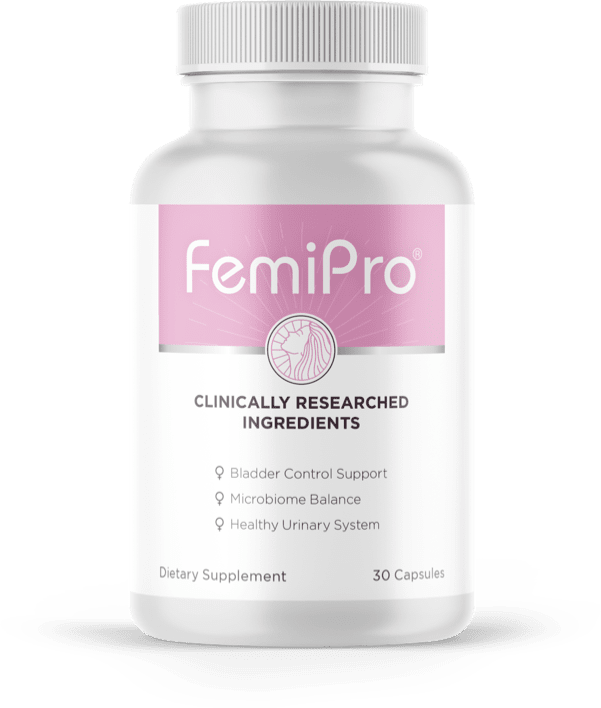
Description
FemiPro Review: What You Need to Know About This Popular Supplement
Maintaining a healthy urinary system is crucial for overall well-being, yet many women find it challenging to address concerns such as mild bladder leaks or frequent urges. Dietary supplements now flood the market, each claiming to support urinary health in some way. FemiPro, one such supplement, has recently drawn attention for its blend of herbal extracts and probiotics. But do its ingredients live up to the marketing claims?
Understanding Female Urinary Health

The female urinary tract is a complex system, influenced by factors like hormone levels, microbial balance, and individual anatomy. Common urinary complaints such as urgency, occasional leaks, and discomfort often prompt women to seek natural remedies. While certain lifestyle measures (e.g., pelvic floor exercises, fluid management, and medical evaluation) are well-established approaches, the role of over-the-counter supplements remains less certain. In this context, evaluating the science behind a product like FemiPro is an essential step before deciding to try it.
What Is FemiPro?

FemiPro is marketed as a natural urinary health supplement designed to support a balanced urinary microbiome, thereby potentially improving bladder control and reducing occasional leakage. According to its promotional materials, it includes a blend of botanicals and probiotic strains that aim to cultivate a healthier microbial environment in the urinary tract. The theory is that by favoring "good" bacteria over "bad" one might experience fewer sudden urges or involuntary leaks.
Key Ingredients in FemiPro
Mimosa Pudica: A plant commonly cited in traditional remedies.
Bearberry (Uva Ursi): An herb sometimes referenced for urinary benefits.
Cranberry Extract: Widely known in wellness circles for urinary support.
Probiotic Blend: A mixture of “beneficial” bacteria strains intended to help maintain a favorable microbial environment.
Granular Berberine: A plant-derived compound often discussed for its antimicrobial properties.
Scientific Evidence: Are These Ingredients Backed by Research?
Mimosa Pudica: Research on Mimosa Pudica’s effect on human urinary health is sparse. Most available data come from laboratory or animal studies, not robust human trials. Without high-quality clinical evidence, it’s difficult to determine whether it truly benefits the urinary tract.
Bearberry (Uva Ursi): Historically, Bearberry has been used in herbal traditions to support urinary function. However, contemporary scientific reviews are mixed. While some limited studies hint at potential antimicrobial effects, the absence of well-controlled trials means we cannot confidently confirm it improves bladder control or reduces leakage.
Cranberry Extract: Cranberry has been studied more extensively than many botanicals. Some research suggests it may help prevent certain bacteria from adhering to the bladder lining. Still, reputable medical institutions often describe cranberry’s effects as modest and inconsistent. It’s more commonly associated with recurrent urinary tract infection prevention rather than improving muscle control or reducing involuntary leakage.
Probiotic Blends: The use of probiotics for urinary health is an emerging field. Certain probiotic strains—particularly Lactobacillus—have been explored in the context of urinary tract infections and vaginal health. Yet, the data remain preliminary, and we lack definitive evidence that a specific blend of probiotics can reliably improve bladder control or address leakage issues. Without transparency regarding the exact strains and their clinical testing, claims remain speculative.
Berberine: Known for its antimicrobial and anti-inflammatory properties, berberine has been studied in metabolic and gastrointestinal contexts. Its direct impact on bladder function or urinary leakage is not well-established through high-quality clinical trials. While it may help rebalance microbial communities in theory, the supporting data specific to urinary health remain limited.
Potential Benefits
Possible Upside:
- Subjective improvements in microbial balance might benefit urinary health for some individuals.
- Cranberry and probiotics have a moderate evidence base for urinary tract support.
Cons:
- Absence of robust clinical trials for FemiPro’s specific formula.
- Preliminary evidence only for most components.
- Not recognized as a proven intervention by mainstream medical bodies.
Side Effects
FemiPro’s ingredients are generally considered safe for most individuals in moderate doses. However, herbs and probiotics can cause mild digestive upset or interact with medications. Women who are pregnant, nursing, or managing chronic conditions should consult a healthcare provider before use. If urinary symptoms worsen or persist, seeking medical evaluation is crucial.
How to Use Arialief:
Simply take 1 capsule a day with plenty of water.
Supplement label:

A Quick Note About Buying FemiPro
If you’re planning to try FemiPro, always buy it directly from the official website. Platforms like Amazon or eBay can sometimes sell counterfeit products that may look legitimate but could be unsafe or ineffective. To protect your health and ensure you get the real product, stick to the official source.
The Bottom Line: Should You Consider FemiPro?
FemiPro may be of interest to those exploring natural urinary health support. However, due to the lack of robust scientific backing, it should not replace evidence-based medical treatments. Consulting a healthcare professional is advised for persistent or severe symptoms.
🔗 Learn More About FemiPro and check for available discounts on the official website



